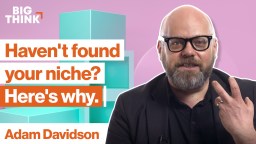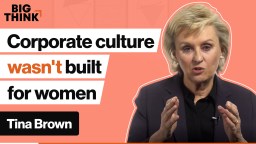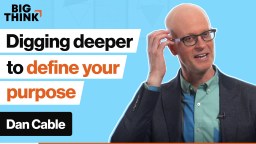DAN CABLE: I think that it's really typical for somebody to not know what their purpose is. I think that the idea of saying find your purpose is a very high challenge. And I think it's probably too demanding in many ways, especially if you're talking about a relatively young person that's just entering the workforce. And so I think that it's kind of interesting to remember that personalizing purpose doesn't mean that you have to find somebody that has a burning passion to serve. It also doesn't mean that the leader has to deliver purpose. Like handing it out like playing cards. I think that the middle ground is to foster interest and to help people experience firsthand the end user of their work.
Let me give you an example of this. I work a little bit with Microsoft and in Vienna there is a country manager there named Dorothy. And one of the things that she does that I find really compelling is when they start up a new project, they go on site with the client. And they don't just take the senior leaders. They take the whole team. They might take as many as 15 people including the programmer, the actual person that'll be doing some code, up to the client representative who's kind of running the whole relationship, and basically everybody in between – the logistics person, the person that'll run the scheduling. They all go on site. They might go on site, for example, to a hospital that's going paperless.
And they'll go on site and just interview and try to understand where would it be hard to go paperless. They'll go to Tesla and they'll talk not only to the engineers at Tesla, they'll talk to the people in finance. They'll talk to the people in production. They'll talk to the people in operations. Another example of this would be Xbox, where they'll go on site and they'll talk about what kind of shipment and delivery issues are you facing right now.
The way that Microsoft is approaching this is twofold. Number one is they're trying to move from a know-it-all culture where we sell software, to a learn-it-all culture where we sell solutions. And so that aligns really nicely with this idea that we need our teams to understand the customer's problems. What are the pinch points? What are the things that we can help with? And then what Dorothy is doing by taking her whole team, even some fairly low, what I would call typically low-level workers, you know, they're not the senior managers. They're the folks that have just been hired within the last year or two. They go on site and they get to hear who it is they're solving and what are those problems.
And I think that is one very small, inexpensive way to think about increasing the sense of purpose, the why of the work in a way that doesn't demand you to call it your dying passion. It's not like you go in there because if I don't do this I'll die. It's more saying listen, either way I'm a programmer and I just need some money. But I happen to work for an organization that really lets me understand why I'm doing the programming. I really understand who's going to use it. It allows me to understand that if I do a good job those people at Xbox will be able to get their shipments on time and that sort of connects me to the why of the work.





